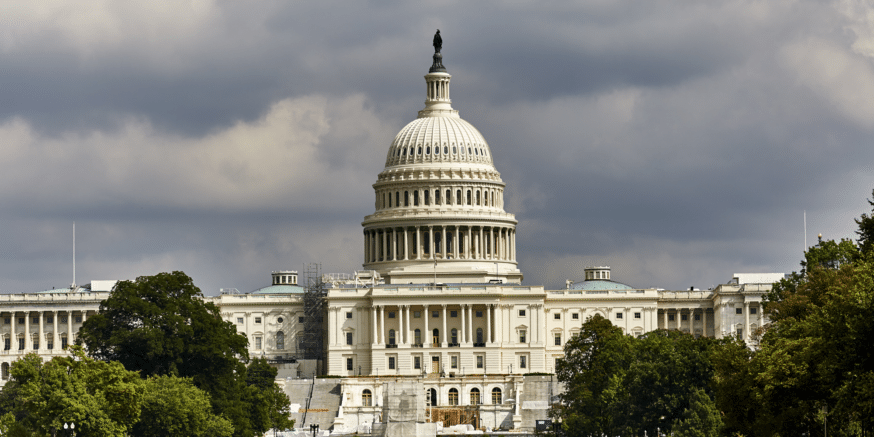TLDR
- Trump considers alternatives for CFTC chair amid ongoing delays in Quintenz’s confirmation.
- Gemini’s Winklevoss twins oppose Quintenz’s nomination over past enforcement disputes.
- The CFTC is currently under-staffed, with only one active commissioner, Caroline Pham.
- The agency is expected to gain broader crypto oversight powers as new legislation develops.
The Trump administration is reportedly weighing new candidates to lead the Commodity Futures Trading Commission (CFTC) after the stalled confirmation of Brian Quintenz. Despite initial support for Quintenz, delays and opposition, particularly from Gemini co-founders Tyler and Cameron Winklevoss, have complicated his path to the role. With the CFTC currently under-staffed, the administration is exploring other potential candidates to fill the position.
The CFTC plays a critical role in regulating financial markets, including digital assets. Its leadership vacancy has raised concerns, especially as the U.S. Congress is moving forward with legislation to expand the agency’s oversight of the growing crypto sector.
New Candidates Being Considered for CFTC Chair
In light of the delays in Quintenz’s confirmation, the Trump administration is reportedly considering alternative candidates for the CFTC chair position. Among those under consideration are Michael Selig, the chief counsel to the Securities and Exchange Commission’s (SEC) crypto task force, and Tyler Williams, a Treasury counselor with experience in digital asset policy.
Both individuals have significant experience with cryptocurrency regulation, making them strong contenders to lead the CFTC at a time when the agency’s role in overseeing crypto markets is growing.
While no formal decisions have been made, the growing urgency to fill the position reflects the importance of crypto regulation in the U.S. Selig and Williams are seen as potential candidates who can navigate the complex and fast-evolving landscape of digital assets.
Winklevoss Twins’ Opposition Stalls Quintenz’s Confirmation
Quintenz, a former CFTC commissioner and head of policy at a16z crypto, was initially nominated by Trump to lead the CFTC. However, his confirmation has faced significant opposition from key figures in the crypto industry, most notably the Winklevoss twins. Tyler and Cameron Winklevoss, prominent supporters of Trump, reportedly lobbied the administration to halt Quintenz’s nomination due to concerns over his handling of enforcement actions against Gemini, their exchange.
The twins’ opposition stems from a dispute with the CFTC over the agency’s handling of an investigation into Gemini’s practices. The Winklevoss brothers expressed frustration over what they described as a “lawfare” campaign against their company. As a result, Trump’s administration requested a delay in Quintenz’s confirmation process, with some speculating that the Winklevoss twins’ influence on the president may have contributed to this move.
CFTC Faces Staffing Shortages Amid Growing Regulatory Demands
The CFTC is currently operating with only one active commissioner, Caroline Pham, who is serving as the acting chair. The agency is expected to play a central role in the regulation of crypto assets, especially as Congress considers legislation to give it more oversight. However, the prolonged vacancy in the chair position has led to concerns about the CFTC’s ability to adequately manage its growing responsibilities, including regulating spot trading in digital assets.
The uncertainty surrounding the CFTC leadership comes at a time when the agency is implementing new initiatives to facilitate crypto market growth.
In August, the CFTC launched the “crypto sprint” program, allowing offshore exchanges to serve U.S. customers. Additionally, the agency is considering allowing the trading of spot crypto asset contracts on CFTC-registered futures exchanges. With the regulatory landscape shifting rapidly, a confirmed chair is crucial for guiding the CFTC through these changes.
CFTC’s Role in Expanding Crypto Oversight
As the CFTC continues to grow its involvement in crypto regulation, the agency is positioned to play an increasingly influential role in shaping the future of digital asset markets in the U.S. Proposed legislation, such as the Financial Innovation and Technology for the 21st Century Act, would expand the CFTC’s authority over crypto assets, allowing the agency to oversee not just derivatives but also spot trading.
The ongoing delays in filling the CFTC chair position have sparked debates about the agency’s ability to effectively manage this growing responsibility. The administration’s decision to explore alternative candidates underscores the importance of strong leadership at a time when the crypto industry is facing intense regulatory scrutiny.







